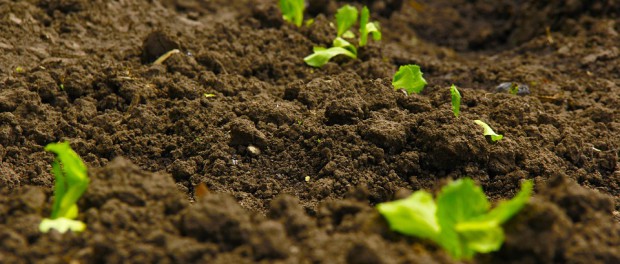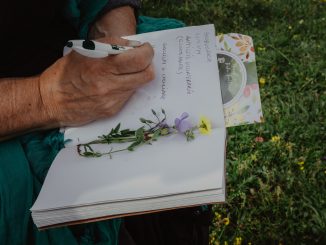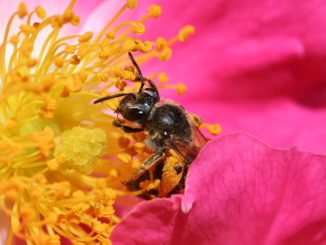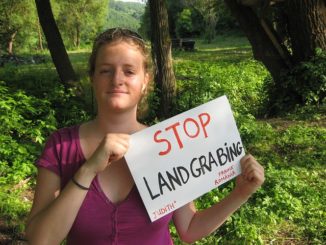By Mario Catizzone; update with extra links added on 22/02/2016 at 23.24 GMT
It is almost two years since the European Commission withdrew its proposal for a directive related to a Thematic Strategy on soil protection. This after eight years of fruitless negotiations for its approval.

The current European Commission plans no further action in this matter. Without a clear indication from the EU, Member States will continue to not taking care with soil. Yet the data of soil consumption and loss of soil fertility are appalling. In this context, civil society simply has to act.
Twenty environmental groups wrote in May 2015 a letter to the European Commission asking it re-initiate a proposal for a directive on soil. On June 18, in a meeting conducted at the Expo 2015 in Milan, People4Soil began the process of building a soil directive through the people, via the European Citizens’ Initiative. Today People4Soil has grouped already more than 200 associations of 21 EU Member States (and several international organizations) and it is ready to launch the campaign to collect the required one million of signatures through the whole EU.
The Italian Save the Landscape Forum (SIP Forum) promotes the People4Soil campaign. At the same time, SIP Forum facilitates a process whereby person can work towards taking care of soil, land and landscapes. In December 2015, it joined the 4for1000 Initiative launched in concomitance with COP21 in Paris. Since early 2015, the SIP Forum has a specific internal group, named Europe Soil Group (GSE) dealing with Europe and soil. The GSE mandate is to bring together EU individuals and organizations on joint common actions to make real the following principles:
- Soil as a common environmental good that belongs to future generations (even if they do not vote and consume yet);
- Protection of the ecological, social and cultural values of soil, land and landscape;
- Soil, land, landscape as a public and general commitment (social utility) that rises above private interests (a principle already present in the Italian Constitution);
- Promotion of soil, land and landscape; along with the definition of direct and indirect costs of degradation or loss;
- Defense of the soil fertility and support for initiatives that preserve or recover it, as a fundamental prerequisite to ensure quality agriculture, save biodiversity and ensure a real food quality control;
- Responsibility and solidarity towards the most deprived (poverty), the more distant (“glocalization”: land grabbing), the most defenceless individuals;
- Support for culture and research; preservation of the natural landscape and the historical and artistic heritage;
- Creation of a legal defense frame for soil, land and landscape at different levels: Local –National – European (e.g. give a mandate for enforcement actions to the European Environment Agency);
- Fight against soil use for speculative purposes or by criminal organizations;
- Communication and information on the importance of soil, land and landscape for present and future life, using languages and demonstrations tailored to each target group;
- Introduction of the concept of democratic control on soil, land and landscape (based on the concepts and principles of sustainability) by civil society organizations (including dialogue with associations of farmers, builders, soil scientists …);
- Support of local/national/European authorities and decision-makers determined to address problems relating to employment (i.e. access to soil for new young farmers), soil-sealing and other soil-related issues; specific training of public actors on soil, land and landscape protection;
- Land planning based on a democratic and transparent approach (information and participation), subject to approval of the inhabitants of the affected areas;
- Aggregation of urban development only in areas that are already urbanized or disposed of.
Without a strong impulse from the EU people and their representatives, the European Commission will not overcome the obstacles put in place by the Member States. It is up to citizens and their associations to feel concerned and take all the necessary initiatives to promote, from the ground up, soil protection at the European level. The EU civil society organizations (CSOs) must take action and drive the legislative functions of the EU on soil, land and landscape. At the same time, it is critical to improve training and promote awareness and responsibility on policy-makers and local authorities who have to apply existing national and European regulations.
Associations already exist and take care of the environment and society. They are locally strong but often they act in isolation. Solutions implemented and verified are often unknown of elsewhere. Having seen the urgency to save soils and their fertility, there is a need for actions to create links and empowerment.
The question is how to act? In the next post, we will hear about one way to act via the Mud Angels, and, potentially, European Soil Angels.
Get involved!
The European Soil Group of the Salviamo il Paesaggio Forum: The Forum covers more than 1000 – between local and national – Italian associations that fight to stop soil, land and landscape consumption and degradation.
People 4 Soil is a free and open network of European NGOs, research institutes, farmers associations and environmental groups. People4soil is very worried about the increasing degradation of soils both in the EU and at global level: erosion, sealing, loss of organic matter, compaction, salinisation, landslides and contamination have negative impacts on human health, food security, natural ecosystems, biodiversity and climate, as well as on our economy.
https://youtu.be/kN6p0q7qULU





